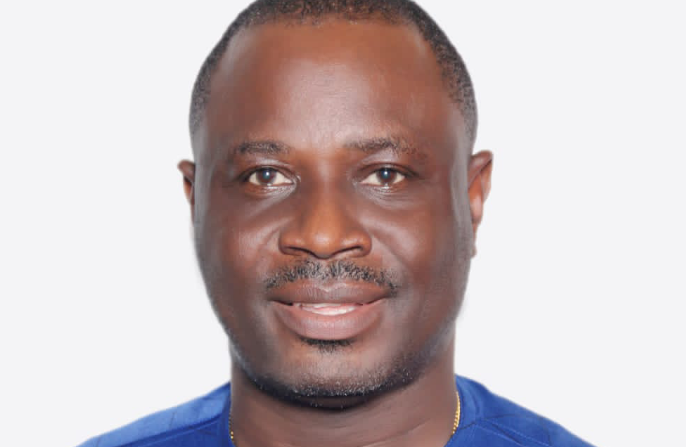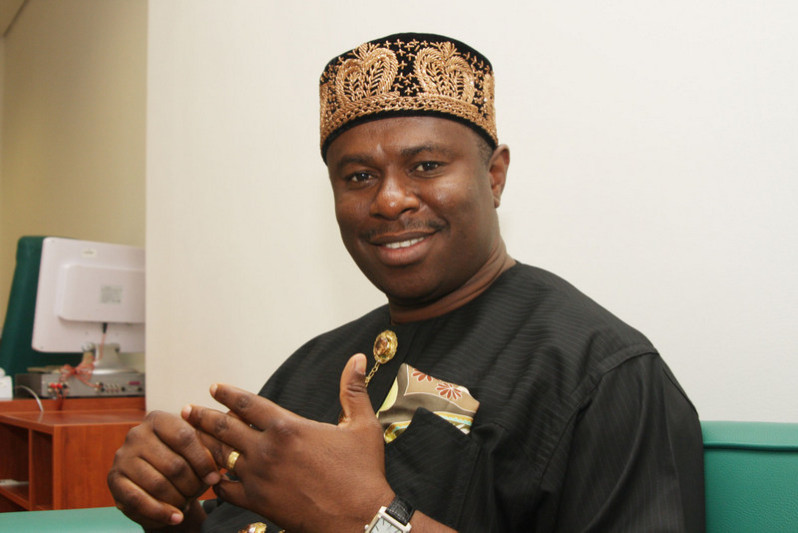By Dakuku Peterside
For decades, Nigerians have been living in denial about the state of our country’s petroleum refining and distribution system. Even non- specialists without any training in elementary petroleum economics know there is something wrong with our petroleum products refining, importation, and distribution regime and regulatory systems. Unfortunately, even with enacting the protracted Petroleum Industry Act, Nigerian leaders have not mustered the political will to address the issue for reasons of political convenience and economic motives.
One of the critical problems is that Nigeria, as one of the largest producers of crude oil globally and the largest producer in Africa, has been shamelessly engaging in importing petroleum products because the refineries are not in good working condition. Nigeria has a corruption-ridden and devastating oil subsidy regime, a poor and ineffectual regulatory framework that negatively impacts its economy. There is a need for systemic change to eliminate the importation of petroleum products, get the refineries working, and ensure a fit-for- purpose regulatory framework with little or no room for abuse. One issue that merits consideration alongside this envisioned overhauled system is total deregulation of the sector to attract private investment.
Last week, as is the case with the pervasive substandard products – drugs, industrial products, cosmetics, drinks, and other consumables – imported into Nigeria, substandard petroleum product or, more appropriately called, off-the-specification product was imported and distributed across the nation with devastating implications on users of the products. This event sparked off a lot of fury and reactions. Typical of Nigeria, we have focused on the blame game, and nobody accepts responsibility, not even NNPC. This event is not the first time we imported petroleum products that did not meet national and international standards and will certainly not be last. The successful importation and distribution of “adulterated fuel” has vast implications, from economic losses, large scale deterioration in the performance of car engines, environmental pollution to most importantly, failure of regulatory enforcement.
Now we face this monumental challenge; the critical issue is unravelling the truth, examining the lessons, proffering solutions on the way forward, and rejigging our supply and regulatory systems to make them more effective and efficient. The big question is, do we have the political will?Although ill-fated and hugely damaging to our economy and image, this substandard PMS brouhaha may be an opportunity to revisit our PMS importation and distribution system and the regulatory regime to get it right once and for all times.
The usual reaction by Nigerians and the government is what we are witnessing now: the Federal Government will call for investigations, the Ministry of Petroleum will set up an investigation panel made up of the same people who should have prevented this from happening in the first place. The National Assembly will condemn and set up a committee of those with oversight responsibility to ensure this system failure did not occur ab initio. Investigators make a scapegoat of a few petroleum importing companies who acted on behalf of NNPC and use one “truth” to cover another truth until the truth becomes the casualty in the process of trying to unravel the truth. This process is cyclical and produces nothing tangible. Soon we will forget, like a collective that suffers amnesia, and new events will show up to overshadow previous ones, and we, as usual, move on as if nothing happened.
This issue of substandard or adulterated fuel raises five critical questions that could lead us to the truth: What standards of refined PMS petroleum products are prescribed for consumption in Nigeria? Has the market regulator and regulatory process for importing petroleum products failed? Did the multiple quality control mechanism for imported petroleum products fail? How did the “off- the – standard” pass into the market and escape all checks by the regulator? Do the regulator, supplier, and testing laboratories have the requisite capacity? Why has the importation process of petroleum products been shrouded in secrecy for so long? As we transition to complete deregulation, what are the regulatory systems we are putting in place to ensure Nigerians do not suffer from consuming “adulterated products “? Why would a major oil-producing nation be a significant petroleum product importing country for over 40years? Why are our refineries refining little or no fuel inspite of billions of dollars in maintenance bill over a 25 year period?
The specific infraction that sparked this instant reaction is that methanol, in unacceptable percentage, was found in premium motor spirit (PMS), otherwise called fuel, supplied to retailers. The product was traced to cargo delivered by Litasco, the Swiss trading arm of Russia’s Lukoil. NNPC ltd, in trying to explain its involvement in the matter, inadvertently caused panic, brought about a disruption in the supply chain, leading to long queues due to panic buying. MRS Nigeria, the retailer that raised the alarm, also issued a statement denying importing this specific cargo but instead received it through NNPC. MRS Nigeria further explained the steps she had taken to mitigate the situation.
A consortium under the Direct-Sale-Direct-Purchase (DSDP) contract also issued a formal statement to explain her side of the story. This poor information management or miscommunication confused Nigerians about the truth about this adulterated petroleum product. Industry professionals have said that testing for methanol is typically not the conventional practice because it is a blending component for petroleum products. Methanol in acceptable quantity in PMS raises the octane level and minimises engine knock. However, PMS (fuel) with high methanol content harms car engines, leading to structural failure or the explosion of car engines. It is also highly corrosive to aluminium components and can easily cause damage to gaskets and rubber hoses. Methanol is used as various blends up to 5% in China, India, Europe, and America. More worrisome in this instant case is that this cargo with high methanol content was certified as meeting Nigerian PMS specifications by NNPC quality inspectors. Also, this product was approved by the Midstream and Downstream Petroleum Regulatory Authority (NMDRA), the industry regulator. The import passed all regulatory scrutiny and was found fit for consumption. The net effect is that there was a clear oversight of requisite methanol content standards by the supplier and NNPC, authorized sole importer of PMS.
I have read many knee jerk reactions from quarters, and it is evident that many commentators and “experts” do not have informed knowledge. Based on my background knowledge and experience as a former Chairman, House of Representatives Committee on Petroleum Downstream, I think our focus as a country should be on the lessons in this saga to fix a seemingly intractable defective PMS importation and distribution regime.
There are five lessons Nigeria must learn from this saga. PMS Products standards are essential for consistency and safety. First, the regulator should set holistic standards known to both suppliers and consumers, and enforcement of such measures should be sacrosanct and blind to all actors. I am not unaware that the Standard Organisation of Nigeria (SON) and Nigeria Upstream Petroleum Regulatory Commission (NUPRC), through its precursor organisation, the Department of Petroleum Resources (DPR), have a single standard for PMS in Nigeria. Second, regulatory enforcement is vital. The regulator requires capacity, effectiveness, efficiency, and diligence. The profit motive will always drive businesses and, if not effectively regulated, will put their economic interest above public interest and safety.
Third, technology is available in the market today to ensure the products supplied are consistent with prescribed standards. We need to optimise the benefit of technology throughout the petroleum supply and distribution network. Fourth, transparency and capacity are essential in authorising firms to bring products into the country. Lack of transparency breeds corruption compromises quality and is primarily responsible for substandard products. Finally, importing petroleum products for 200 million Nigerians, who produce crude oil, is not sustainable. Dependence on foreign refineries for petroleum products is not suitable for the price, product availability, and quality consistency, and it is susceptible to corruption. It is time we sell off non- functional refineries, license more private ones and end fuel importation and subsidy regime.
The menace of bringing substandard fuel to Nigeria is a social, economic, and environmental monstrosity and an international embarrassment to Nigeria. NNPC ltd, on paper and face value, is the sole importer of PMS today, so it must accept ultimate responsibility for this infraction. It should ensure that it recruits only reputable and capable organisations to import PMS on her behalf, and the system must be made open and transparent. Besides, the fuel quality specification provisions need to be strictly aligned with international best practices to deter companies from cashing in on loopholes circumventing the standards and importing fuel with high Sulphur or methanol content.
There is a need to strengthen the surveillance and monitoring structures so that regulators can easily detect such violations of standards before they enter the domestic supply chains. The ripple effect of adulterated fuel in the market is dire – the cost of recalling the products; the scarcity of the PMS product causes economic pain and hardship and damage to consumers vehicles and other engines that use the PMS. The bottom line is that Nigeria should transition from a net importer of PMS to a net exporter.
Government and other stakeholders should do whatever it takes to kill this massive ‘elephant in the room’. They must summon the political will to crack down on offenders and to fortify the PMS regulatory regime to avoid such embarrassment in the future. President Muhammadu Buhari is leading the way by committing to getting to the bottom of the problem and setting up a high-powered committee to investigate and bring to book all found guilty in this saga. And he directed relevant government agencies to take every lawful step to ensure the respect and protection of consumers against market abuse and social injustice. All other stakeholders must align with the President’s actions and sort things out.
This is not time for apportioning blames and pointing accusing fingers at various organisations and regulatory regimes affected by this saga, we must articulate the lessons and work hard to rejig the system to improve the situation. This development offers us the opportunity to re-examine our petroleum products supply and distribution regime and take decisive actions that benefit Nigerians. PMS is one product that all Nigerians consume, and anything affecting it impacts the lives of all Nigerians. Such a vital product must not be left to the vagaries of production and importation from abroad, and I think this must be considered an issue of national security. Fortunately, Dangote Refinery and other Modular refineries are almost at the stage of starting local refining of PMS. Hopefully, they will have the capacity to refine PMS to cover the demands of Nigerians and other African countries that depend on Nigeria for their PMS shortly.




![Soot and our collective conscience [2] – By Dakuku Peterside](https://thenewsguru.ng/wp-content/uploads/2022/01/9C17485C-1E30-401A-A95D-5296786ED655.jpeg)